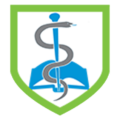About
Offering a four-year U.S. medical degree program, the American University of Integrative Sciences, is known as a premier Caribbean medical university along with having small class sizes (11-1 Faculty: Student) and one of the best Clinical Medicine programs in the region.
School Admin Details
School Details
Tucker, GA
30084
United States
Additional Information
Accreditation Details
The MD Program
The Basic Sciences courses are offered during 15-week semesters, permitting three academic semesters in any given calendar year. The Basic Sciences Program consists of training in multiple disciplines taught in a 5-semester format. Most courses are taught in double 50-minute blocks, 3-5 times per week. Training in some disciplines may span two semesters. Student progress in the Basic Sciences is measured through knowledge-based exams proving competence in each of the courses taught. The assessment of competence in skills and attitude are essential to the unfolding of the 5-semesters of Basic Sciences through courses called “Doctor-Patient Skills.”
The Clinical Medicine Program is a stimulating and enriching feature of medical training at AUIS, requiring both resolve and perseverance. The Clinical Medicine staff works personally with students to ensure they fully benefit from clinical rotations, and go on to attain rewarding residency positions. Students eligible for clinical rotations have clinical sites available to them in over 60 hospitals across nearly 30 states (e.g., CO, CT, GA, IL, LA, MD, DC). Many of our clerkships have ACGME (“Green Book”) listed or affiliated programs on site. Students who have earned their MD degree and certification through the ECFMG have had great success in gaining entrance into a residency training program. The Clinical Medicine curriculum, which follows the Basic Sciences Program, consists of 48 weeks of core clinical rotations and 24 weeks of elective clinical rotations. Students practice clinical skills through patient contact, which is supervised by a physician-preceptor within an inpatient or outpatient care settings. The Clinical Curriculum strives to enhance students' proficiency in taking medical histories, conducting physical diagnostic examinations, and developing doctor-patient relationship skills, thereby enabling students to become competent, compassionate physicians.


